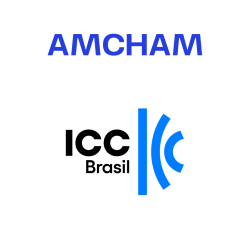Regenerate Cerrado
ABOUT IT
Cargill will monitor the regenerative agriculture practices already adopted on farms in the municipalities of Rio Verde, Montividiu, Jataí and Mineiros, in the southwestern region of the state of Goiás, with the aim of assessing the viability and potential of these regions to become global benchmarks for the production of healthier food. The project is an initiative of Fórum do Futuro Institute and Cargill. Thus, the agronomic effectiveness and contribution to the conservation of healthy soils and carbon sequestration, the preservation of functional biodiversity, including pollination by insects, and the reduction in the use of mineral fertilizers and chemical pesticides will be evaluated.
Results and Objectives
The main objective is to raise awareness and encourage the adoption of technologies referenced by other farmers, regardless of their size or technological inclusion status.
Main results:
1) Associate the performance of agricultural practices with soil quality, the occurrence and severity of pests (insects, phytopathogens and nematodes), as well as crop productivity and yield.
2) Analysis of the perception of farmers in the region about the use of bio-inputs and other regenerative agriculture practices and the gaps to be overcome in order to promote their wider use.
3) Entomofauna sampled and identified, phenology, abundance and population fluctuation of the main pests described.
4) Natural pests sampled and identified, diversity and abundance of natural pests characterized, stomach contents of predators identified by metagenomics, trophic webs described, effect of biological control evaluated.
5) Characterization of plant health through spatial and spectral analysis by optical sensors to validate the homogeneity of the sample areas and the qualification of micro-regions and micro-environments adjacent to the study areas.
6) Demonstrate whether there is an improvement in the physical, chemical, biological and hydrological characteristics of the soil in regenerative agriculture systems compared to conventional management and to identify which indicators are most related to these changes.
7) Demonstrate the contribution that the use of bio-inputs can make to sequestering carbon from the atmosphere and reducing the release of greenhouse gases in food production.
8) Characterization of the community of bees that visit soybeans and comparative quantification of the pollination service in areas with different levels of adoption of bio-inputs.
9) Report economically on the productivity and profitability of the crops evaluated, showing the results obtained throughout the project in reports that combine economic and agronomic information.
10) Raising awareness among other farmers and researchers about the importance and viability of using bio-inputs and regenerative agriculture.
11) Ensure integration between researchers, that results, deadlines and resources are within expectations and mediate activities for the smooth development of the project.
SDGs
External Certification
International Commitments
National Commitments
More info



